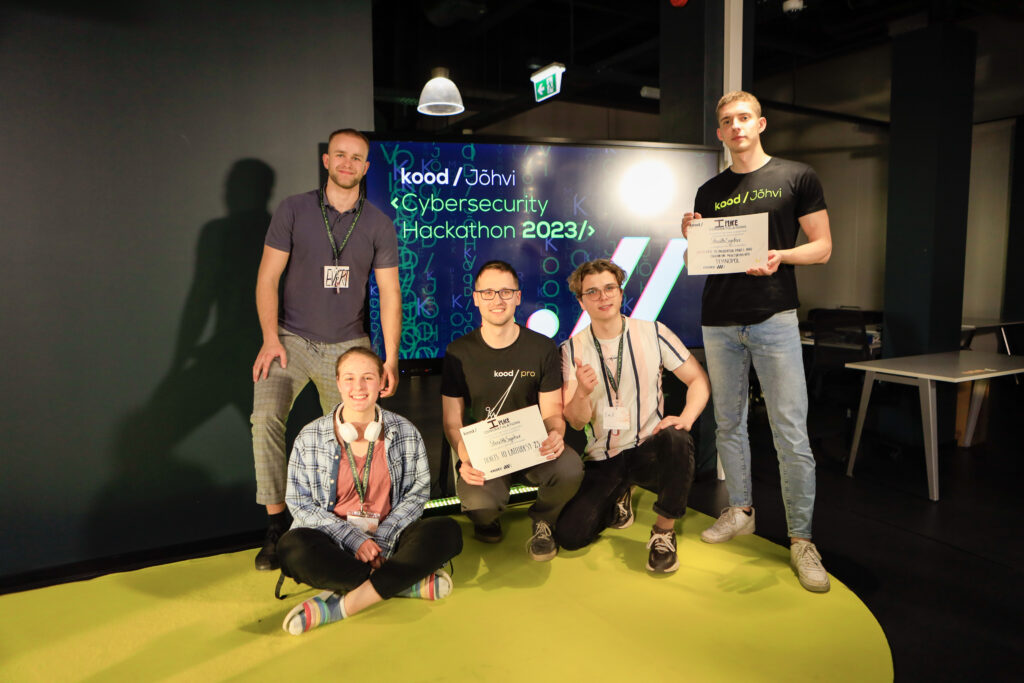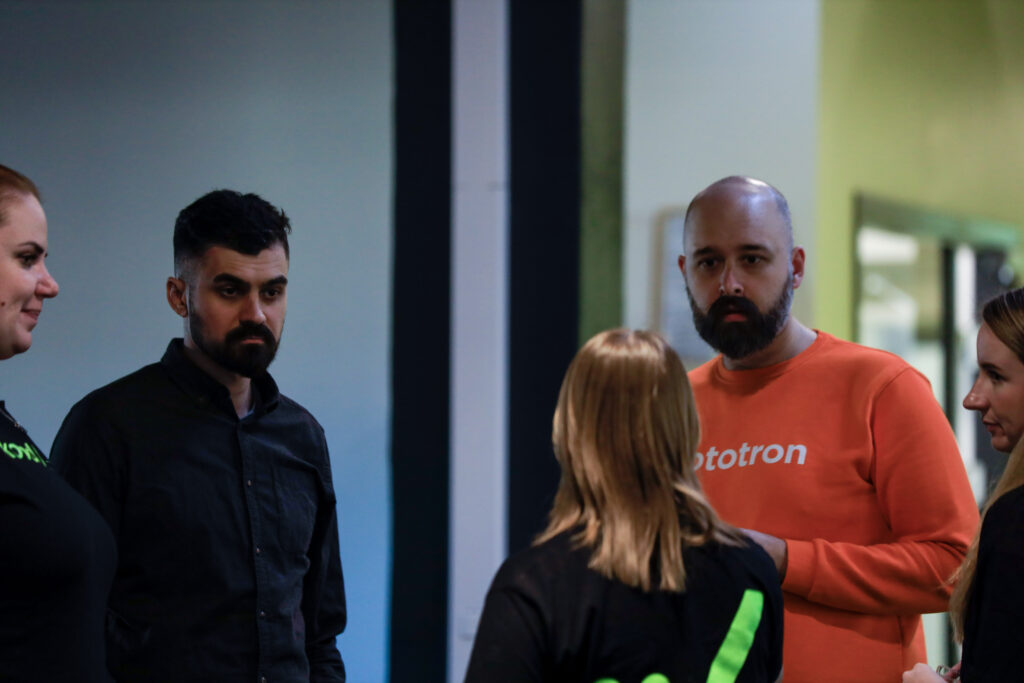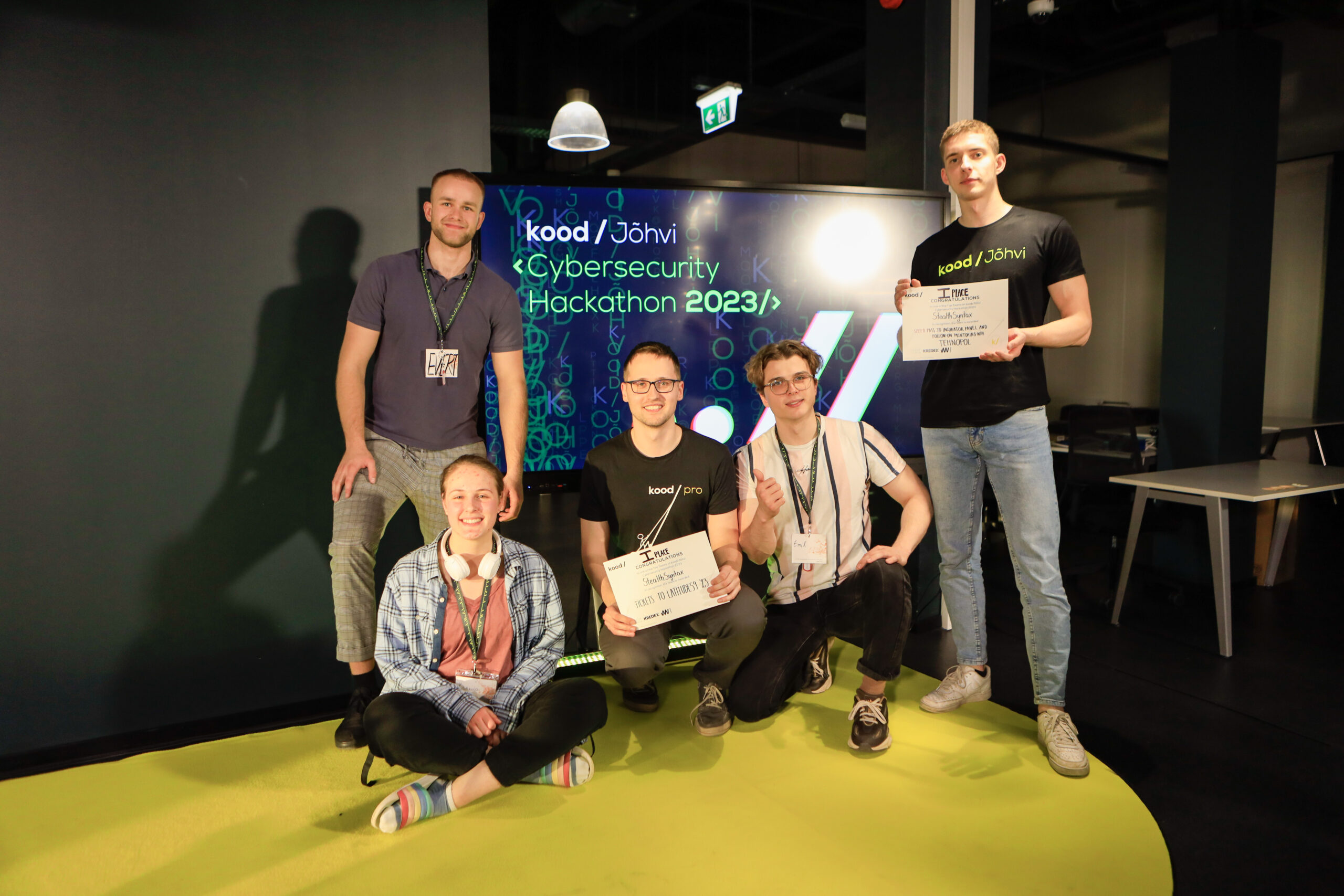The quest to find innovative solutions for real-world cybersecurity problems took center stage at the recent kood/Jõhvi Cybersecurity Hackathon. This exciting event saw over 100 cyber enthusiasts come together to tackle the pressing issues of today’s digital landscape. In a tremendous display of collaboration and creativity, 15 new ideas were developed within a 48-hour period, all aimed at making the virtual world safer.
A Gathering of Minds for a Safer Digital World
The kood/Jõhvi Cybersecurity Hackathon, organized by Startup Estonia and kood/Jõhvi, brought together a diverse group of participants from various fields. They converged on the town of Jõhvi for an intense 48-hour hackathon, where they focused their efforts on developing solutions to challenges in cybersecurity. This included tackling issues related to phishing attacks, deep fake, artificial intelligence, and improving cybersecurity awareness.
Presenting the Winners: StealthSyntax, Arrjee, and Webiify
The event culminated in a grand finale on Sunday evening, where eight teams presented their prototypes to a highly-esteemed jury.
1st place: StealthSyntax
StealthSyntax devised an ingenious method to enhance the security of ChatGPT, a popular AI solution. Their approach is aimed at securing user input information, thus preventing third parties from accessing sensitive data.

Team StealthSyntax developed a code anonymization tool that anonymizes code snippets and replaces variable and function names, among other measures, before sending the code to ChatGPT for analysis. The returned, fixed/debugged code is then also anonymized. This tool addresses the cybersecurity concern of data leaks, allowing companies to safely utilize the benefits of ChatGPT to increase their productivity.
2nd place: Arrjee
Arrjee proposed a solution to the problem of circulating content with no integrity checks. With the ease of making fake news and deep fakes, information is no longer reliable. The team developed a browser extension that enables users to add and check signatures on pictures, providing an additional layer of authenticity to the content.
The solution is targeted towards public figures, such as journalists, authorities, and influencers, who require verification of the information they share. Users who require signing functionality would be required to pay, but checking functionality is free.
3rd place: Webiify
Webiify developed a program to assist in blocking and deleting corrupt websites, utilizing pre-existing knowledge in databases and machine learning to determine the authenticity of a website.
The solution aims to enhance cybersecurity by preventing users from inputting personal information into corrupt websites. This tool is targeted towards anyone who uses the internet and is susceptible to security breaches, including identity theft and financial fraud.
The Role of Mentors and the Impact of the Hackathon Experience
The hackathon was not merely a competition; it was also a learning experience. Sixteen dedicated mentors were on hand throughout the event, providing valuable advice and guidance to the teams.

They assisted participants in clarifying problems, developing ideas, and implementing them at an impressive speed.
Feedback from Participants and Organizers
Participants and organizers alike were effusive in their praise for the event. Kaspar Johannes Pärtel, a member of the winning team StealthSyntax, shared his powerful experience, affirming the value of fully dedicating oneself to a project. Kati Pärn, a member of the jury and the Cyber Security Project Lead at Startup Estonia, commended the enthusiasm and ingenuity of the teams. She stressed that the topics addressed were critical given today’s geopolitical situation and the rapid development of artificial intelligence.
For the students at kood/Jõhvi and the school’s organizers, this was their first public hackathon. Their delight at the results was palpable, as was their intention to continue implementing and organizing future hackathons.
A Forward-Looking Initiative: kood/Jõhvi and the Future of Cybersecurity
The kood/Jõhvi Cybersecurity Hackathon is a testament to the kood/Jõhvi’s commitment to fostering innovation in cybersecurity. As an innovative program that imparts 21st-century programming skills, kood/Jõhvi is a game-changer in the field. Its approach to learning has the potential to reduce the shortage of software developers and open up new opportunities for people from diverse backgrounds.

The kood/Jõhvi Cybersecurity Hackathon could not have been a success without the participation of enthusiastic teams, dedicated mentors, and supportive partner companies. The energy, innovation, and hard work exhibited at the hackathon are indicative of the potential that such collaborative events hold for the future of cybersecurity.
*Have any questions regarding the Hackathon? Write to us to info@kood.tech for extra information!
*Interested in more about the kood/Jõhvi Cybersecurity Hackathon? Check out the amazing pictures captured by Vladislav Šmigelski and a video highlighting the event from here.
The Hackathon was supported by the Estonian Business and Innovation Agency, Startup Estonia, Kredex, Tehnopol, Cybers, Telia, LHV, Miltton, Latitude59, NFTTallinn, sTARTUp Day, Guardtime, k-Space, Rangeforce, TalTech, Estonian Defence Forces Cyber Command, Objekt, FFF.
